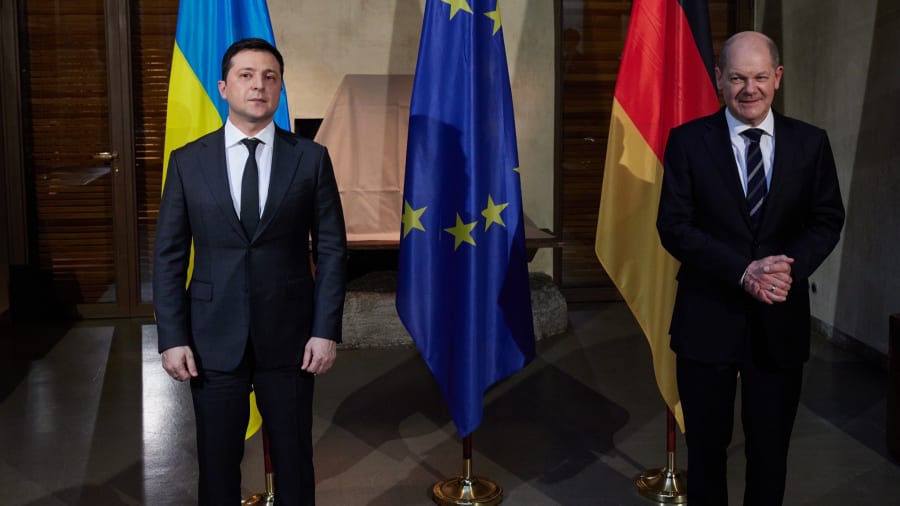In stark policy reversal, Germany decides to send weapons to Ukraine after all
At first, Germany had committed to sending just 5,000 helmets

Several days after Russian President Vladimir Putin ordered the attack on Ukraine, Germany announced on Saturday that it would be sending 1,000 anti-tank weapons and 500 Stinger missiles to Ukraine.
“The Russian attack marks a turning point. It is our duty to do our best to help Ukraine defend against the invading army of Putin. That's why we're supplying 1,000 anti-tank weapons and 500 stinger missiles to our friends in the Ukraine,” German Chancellor Olaf Scholz said in a statement on Twitter.
The decision marks a complete reversal of Germany’s policy on arming Ukraine up until now. While other European countries, such as the UK and France, pledged to send arms to Ukraine weeks ago, Germany refused, offering only to send 5,000 helmets and a field hospital.
In addition, Germany, which is the wealthiest and most powerful economy in Europe, was blocking other NATO countries from arming Ukraine in NATO's Support and Procurement Agency (NSPA). In December, Germany blocked the delivery of anti-drone jamming guns, although Ukraine had already paid for them.
“Such weapons could potentially provoke further military escalation on the demarcation line (between Russian and Ukrainian forces) and lead to larger clashes,” German officials explained to Ukrainian Ambassador to Germany Andriy Melnyk.
Germany has cited its history in defense of its refusal to send arms to Ukraine. German foreign minister Annalena Baerbock has said that the government's restrictive arms export policy is “rooted in our history” and that “diplomacy is the only way.”
However, despite this professed restrictive arms policy, Germany’s arms exports nevertheless reached record levels in 2021 with exports worth 9.35 billion euros ($10.65 billion), an increase of 61% compared to 2020. Almost half of those exports went to Egypt, which human rights activists have accused of violations in both Yemen and Libya.
Germany is highly dependent on Russia for its energy needs and only halted its opposition to freezing the Nord Stream 2 pipeline after massive public pressure. Germany depends on Russia for approximately 50% of its natural gas and coal, and for a third of its oil supply. As a whole, 43% of Europe's total gas imports come from Russia.
Following Germany’s policy reversal, the country will no longer ban other NATO countries from exporting weapons that originate in Germany to Ukraine. It means that the Netherlands, for instance, will be able to transfer 400 rocket-propelled grenade launchers to Ukraine and that Latvia will be able to send old German howitzers to Ukraine.
Until now, Germany blocked such actions, drawing much anger from Latvian Defense Minister Artis Pabriks, who in January, called Germany’s relationship with Russia “immoral and hypocritical” and the Western response in general as “wishful thinking.”
“How are you acting yourself when it comes to Lithuania, Russia, China?” Pabriks asked a month ago. “It’s immoral and hypocritical. It’s driving a division line between West and East in Europe. Germans forgot already that Americans were granting their security in the Cold War. But they should [remember]. It’s their moral duty.”

The All Israel News Staff is a team of journalists in Israel.













